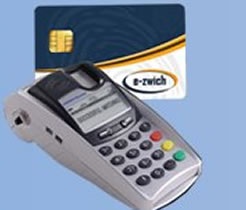The Controller and Accountant-General’s Department (CAGD) must take the lead in the adoption of the e-zwich payment system for public sector workers if it is to eradicate the rising incidence of payroll fraud, Archie Hesse, Chief Executive Officer of the Ghana Interbank Payment and Settlement Systems (GhIPSS), has said.
This year, Ghana’s public wage bill is estimated at GH¢11billion or about 10 percent of GDP, and proposed moves to tame the rising bill include the cleansing of government’s payroll of so-called ghost names.
According to Mr. Hesse, the e-zwich biometric payment platform provides an easy route for the CAGD to sanitise the payroll. “If we are all paid via e-zwich, everybody who’s paid can be uniquely identified. It will eradicate all these issues [double payments and ghost names] we all hear about,” Mr. Hesse said in an interaction with the media yesterday.
He added that while it is mandatory for all financial service providers -- particularly banks and savings and loans companies -- to offer e-zwich services, non-compliance by some of these institutions makes it difficult for the CAGD to go ahead with its plans of full-scale implementation of e-zwich.
“If I am paid on an e-zwich card and every bank I go to doesn’t offer the service, why should I restrict myself to a form of payment that would hinder me?” he asked.
The defence given by most banks for not offering the service, according to him, is the malfunctioning of the Point of Sales (PoS) terminals. That excuse, he said, is not tenable as by law the banks are required to ensure maintenance of the infrastructure.
“They should have their own support mechanisms. It is not our (GhIPSS) responsibility; they should own it,” he said, referring to the e-zwich payment system.
That notwithstanding, Mr. Archie said GhiPSS will be deploying more PoS terminals to enhance the usage of e-zwich as well as other local payment systems such as the gh-link, a national switch that allows holders of local debit cards access to any ATM outlet they come across.
“Local card-holders have access to ATMs of all the 27 banks and five savings and loans companies. Soon, rural and community banks will also be added to further increase the number.”
GhIPSS, he stated, is working to ensure that local card-holders are not disadvantaged. “It will be better customer service if more bank customers are issued with the local cards to enable them enjoy lower transaction cost and access to more ATMs, POSs and do online shopping.”
Ghana and Nigeria are working closely to integrate their national payment systems, Mr. Hesse added. When this is completed, local cards in Ghana will work on ATMs, PoSs, the Internet and mobile money systems in Nigeria and vice versa. Eventually, this will be extended to cover the Francophone West African countries, giving added advantage to local debit cards.
Business News of Wednesday, 29 January 2014
Source: B&FT
GhIPPS proposes e-zwich to fight payroll fraud













